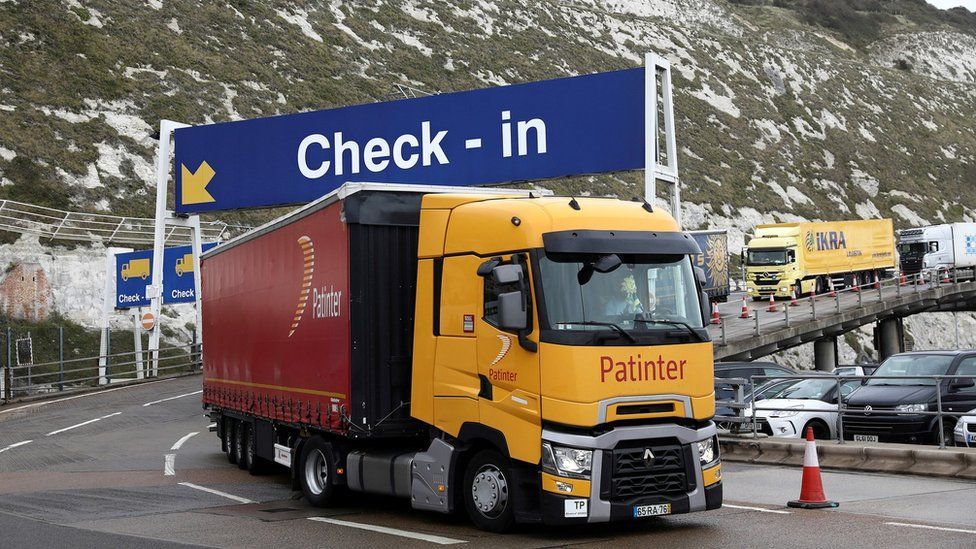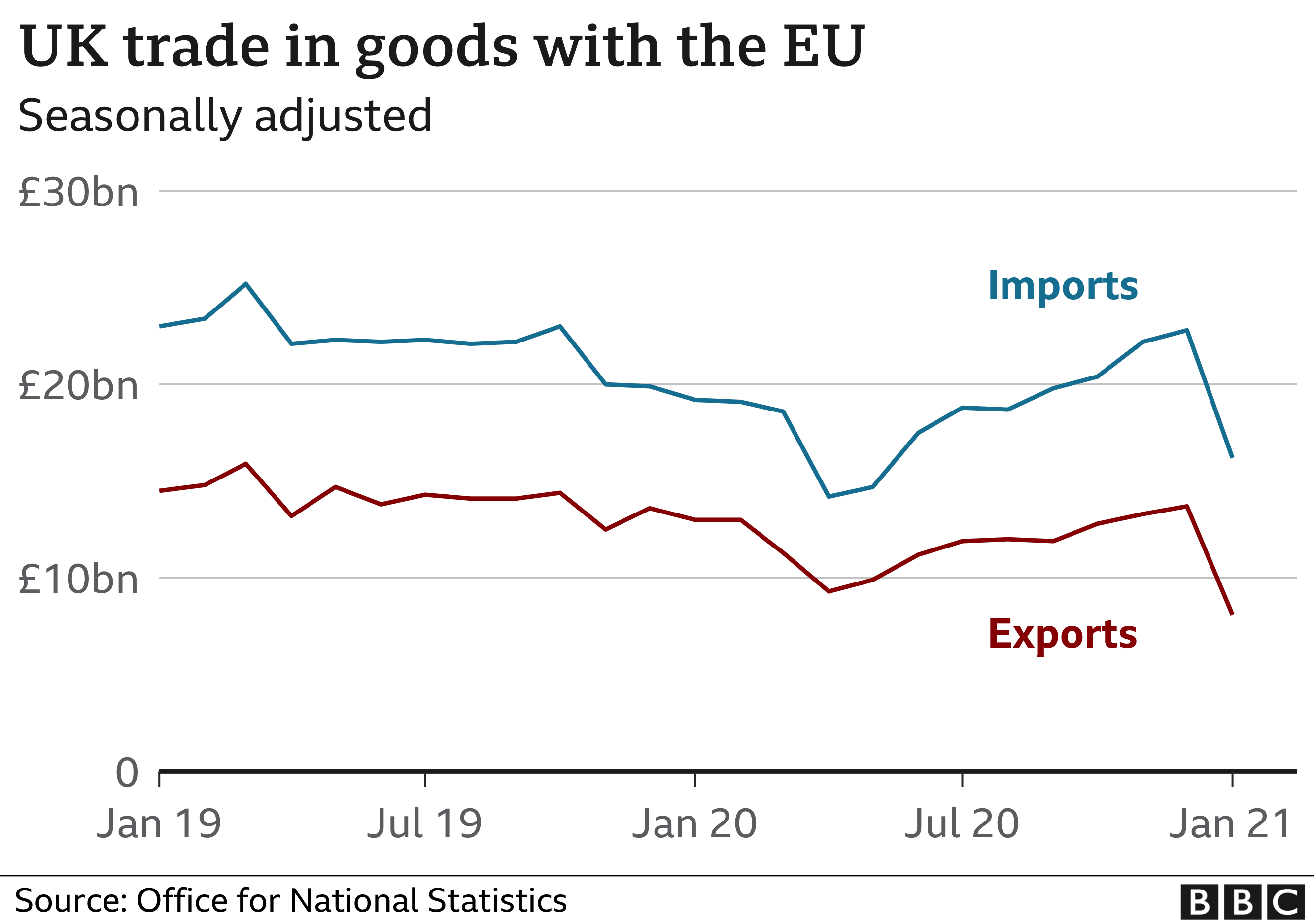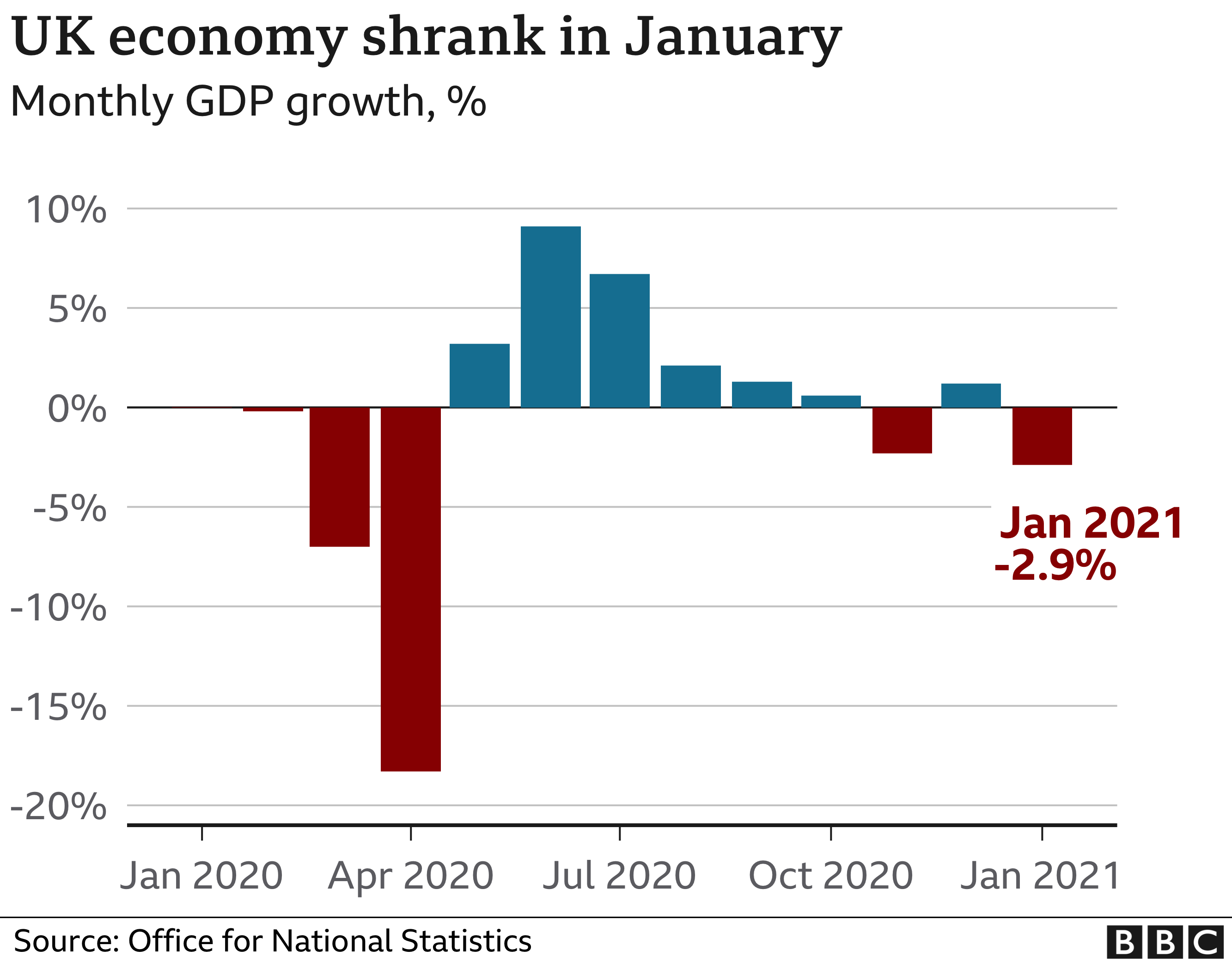UK goods exports to the European Union fell 40.7% in January, according to the Office for National Statistics (ONS), while imports tumbled 28.8%.
The figures show the biggest drop since records began in 1997, and are the first since new trading rules between the UK and the EU came into force.
The ONS said temporary factors were likely to be behind much of the falls.
Meanwhile, new data showed the UK economy shrank by 2.9% in January as the third lockdown came into force.
The economy is 9% smaller than it was before the start of the coronavirus pandemic.
What happened to trade?
Both imports from and exports to the EU fell "markedly" in January, the ONS said. The value of goods exported from the UK to the EU fell by £5.6bn in January 2021, while imports fell by £6.6bn.
The ONS said falls in goods coming into the country were largely seen in machinery and transport equipment, and chemicals from the EU, in particular car imports, as well as medicinal and pharmaceutical products.
KPMG pointed out that trade with non-EU countries grew by 1.7% in January, saying that pointed to Brexit as the likely culprit for the plunge in trade between the UK and the EU. It said intense stockpiling in December 2020 had brought some trade flows ahead of the Brexit deadline.
The ONS also said companies had been stockpiling ahead of the end of the Brexit transition period, and may have been using up that stock instead of buying new goods in January.
In addition, the end of the temporary trading arrangement between the UK and EU coincided with the discovery of a new strain of Covid-19 in the UK, which caused further complications and delay after lorry drivers were required to take tests to cross the border at the English Channel.
Should we be worried?
The figures are the first since Brexit and show the steepest falls since comparable records began, but the ONS said it had data that showed things picking up throughout January.
It said firms were reporting trade was getting easier and reported trade levels began to recover towards the end of the month. .
The number of businesses saying they were unable to export between the middle and the final week of January had fallen by 5.4%, it said, and those saying they could not import had dropped by 3%.
The ONS said the data for the period was "erratic", while Goldman Sachs called it "noisy", meaning there was a lot going on and it was too early to tell how much of the fall was a temporary blip.
What happened to the economy during January?
The ONS said January's contraction in the economy was a "notable hit".
Retailers, restaurants and hairdressers were all affected by the latest Covid-19 lockdown.
Jonathan Athow from the ONS, said. "Manufacturing also saw its first decline since April with car manufacturing falling significantly."However, increases in health services from both vaccine rollout and increased testing partially offset the declines in other industries."
Economic activity in health stood out, increasing by 8.7%, mainly through Covid testing and vaccine schemes.
Pantheon Economics noted a 28.1% drop in output from the food services and accommodation sectors between December and January which "reflected many cafes and restaurants giving up on offering takeaway and delivery services, while the pandemic was raging".
It also said households "slammed the brakes on discretionary expenditure", sending retail and wholesale output down 9%.
How bad is the outlook?
The fall reflects a difficult period for the economy as the third lockdown kicked in.
But it was much smaller than expected. Most economists' estimates came in at 4.9%, and the Bank of England itself forecast a fall of 5%.
Commentators in the main struck a positive note.
Pantheon Economics said the GDP figures were "less dreadful than expected".
Capital Economics said the drop in GDP was smaller than during last April's lockdown, which was down 18.3% on the month.
Its UK economist, Paul Dale, said: "Overall, January's lockdown left the economy in a fairly big hole. But the government's easing roadmap has provided the ladder and the vaccinations are providing the willingness to climb out of it.
"By early next year, we think the economy will be peaking (sic) its head out of the top as GDP returns to the pre-pandemic level."
KPMG said: "Once restrictions are eased the economy is expected to pick up quickly, aided by the significant support the government has put in place. We expect growth of 4.6% this year."




No comments:
Post a Comment